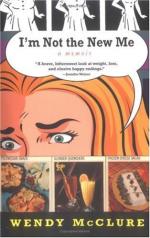The invitation is in the collection of Mr. C.F. Gunther of Chicago, through whose courtesy it is here reproduced.]
“I used to play the fiddle a great deal, and have played for Lincoln a number of times. He used to come over to where I was boarding and ask me to play the fiddle for him; and I would take it with me when I went over to visit him, and when he grew weary of telling stories he would ask me to give him a tune, which I never refused to do.”
LINCOLN MOVES TO SPRINGFIELD.
As soon as the Assembly closed, Lincoln returned to New Salem; but it was not to stay. He had determined to go to Springfield. Major John Stuart, the friend who had advised him to study law and who had lent him books and with whom he had been associated closely in politics, had offered to take him as a partner. It was a good opening, for Stuart was one of the leading lawyers and politicians of the State, and his influence would place Lincoln at once in command of more or less business. From every point of view the change seems to have been wise; yet Lincoln made it with foreboding.
To practise law he must abandon his business as surveyor, which was bringing him a fair income; he must for a time, at least, go without any certain income. If he failed, what then? The uncertainty weighed on him heavily, the more so because he was burdened by the debts left from his store and because he was constantly called upon to aid his father’s family. Thomas Lincoln had remained in Coles County, but he had not, in these six years in which his son had risen so rapidly, been able to get anything more than a poor livelihood from his farm. The sense of responsibility Lincoln had towards his father’s family made it the more difficult for him to undertake a new profession. His decision was made, however, and as soon as the session of the Tenth Assembly was over he started for Springfield. His first appearance there is as pathetic as amusing.
“He had ridden into town,” says Joshua Speed, “on a borrowed horse, with no earthly property save a pair of saddle-bags containing a few clothes. I was a merchant at Springfield, and kept a large country store, embracing dry-goods, groceries, hardware, books, medicines, bed-clothes, mattresses—in fact, everything that the country needed. Lincoln came into the store with his saddle-bags on his arm. He said he wanted to buy the furniture for a single bed. The mattress, blankets, sheets, coverlid, and pillow, according to the figures made by me, would cost seventeen dollars. He said that perhaps was cheap enough; but small as the price was, he was unable to pay it. But if I would credit him till Christmas, and his experiment as a lawyer was a success, he would pay then; saying in the saddest tone, ’If I fail in this I do not know that I can ever pay you.’ As I looked up at him I thought then, and I think now, that I never saw a sadder face.




